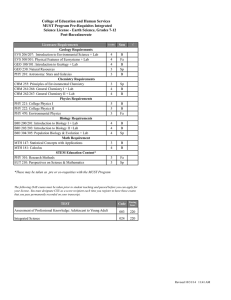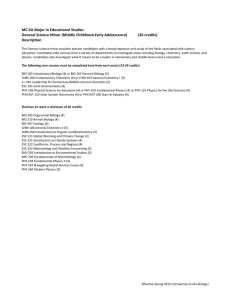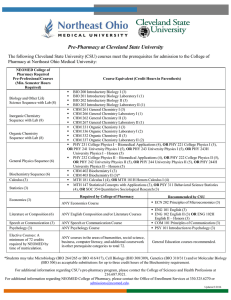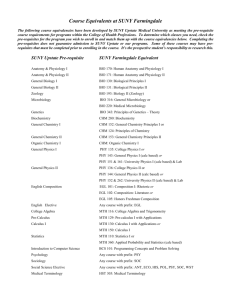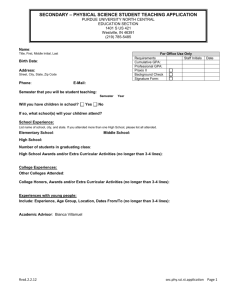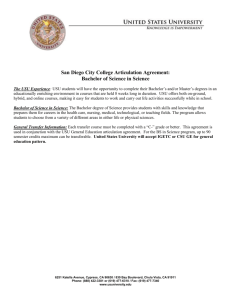Environmental Health Specialist Minor
advertisement
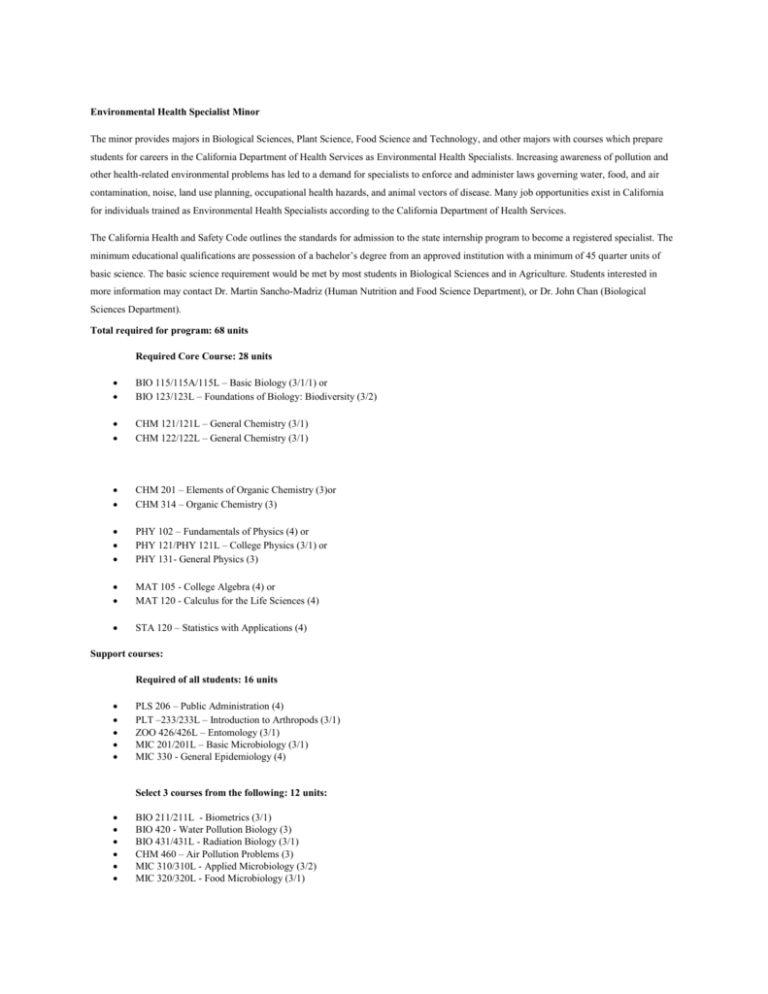
Environmental Health Specialist Minor The minor provides majors in Biological Sciences, Plant Science, Food Science and Technology, and other majors with courses which prepare students for careers in the California Department of Health Services as Environmental Health Specialists. Increasing awareness of pollution and other health-related environmental problems has led to a demand for specialists to enforce and administer laws governing water, food, and air contamination, noise, land use planning, occupational health hazards, and animal vectors of disease. Many job opportunities exist in California for individuals trained as Environmental Health Specialists according to the California Department of Health Services. The California Health and Safety Code outlines the standards for admission to the state internship program to become a registered specialist. The minimum educational qualifications are possession of a bachelor’s degree from an approved institution with a minimum of 45 quarter units of basic science. The basic science requirement would be met by most students in Biological Sciences and in Agriculture. Students interested in more information may contact Dr. Martin Sancho-Madriz (Human Nutrition and Food Science Department), or Dr. John Chan (Biological Sciences Department). Total required for program: 68 units Required Core Course: 28 units BIO 115/115A/115L – Basic Biology (3/1/1) or BIO 123/123L – Foundations of Biology: Biodiversity (3/2) CHM 121/121L – General Chemistry (3/1) CHM 122/122L – General Chemistry (3/1) CHM 201 – Elements of Organic Chemistry (3)or CHM 314 – Organic Chemistry (3) PHY 102 – Fundamentals of Physics (4) or PHY 121/PHY 121L – College Physics (3/1) or PHY 131- General Physics (3) MAT 105 - College Algebra (4) or MAT 120 - Calculus for the Life Sciences (4) STA 120 – Statistics with Applications (4) Support courses: Required of all students: 16 units PLS 206 – Public Administration (4) PLT –233/233L – Introduction to Arthropods (3/1) ZOO 426/426L – Entomology (3/1) MIC 201/201L – Basic Microbiology (3/1) MIC 330 - General Epidemiology (4) Select 3 courses from the following: 12 units: BIO 211/211L - Biometrics (3/1) BIO 420 - Water Pollution Biology (3) BIO 431/431L - Radiation Biology (3/1) CHM 460 – Air Pollution Problems (3) MIC 310/310L - Applied Microbiology (3/2) MIC 320/320L - Food Microbiology (3/1) MIC 410/410L - Medical Bacteriology (3/2) MIC 425/425L - Medical Mycology (3/2) MIC 430/430L - General Virology (3/2) ZOO 435/435L - Ornithology (3/1) Select 3 courses from the following: 12 units: FST 322 – Food Laws and Regulations (4) FST 325 – Food Safety and Current Issues (4) FST 417/417L – Unit Operations in Food Processing I (3/1) FST 423/423A – Principles of HACCP (3/1) PLT 303 – Pesticide and Hazardous Material Laws (3) PLT 333 - Integrated Pest Management (4) PLT 351/351L - Postharvest Physiology (3/1) PLT 411 - Environmental Toxicology (4)
